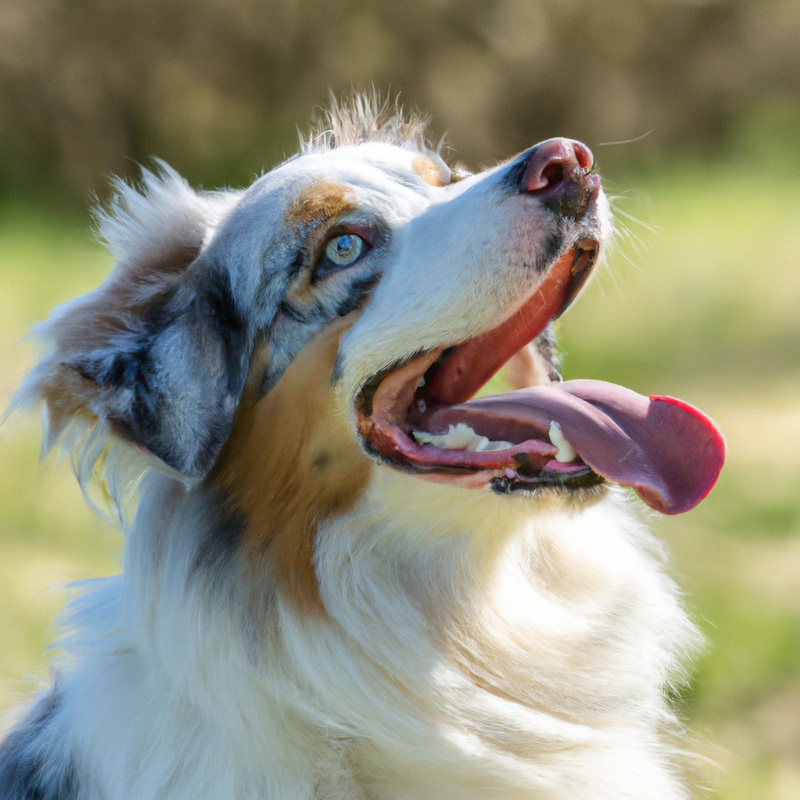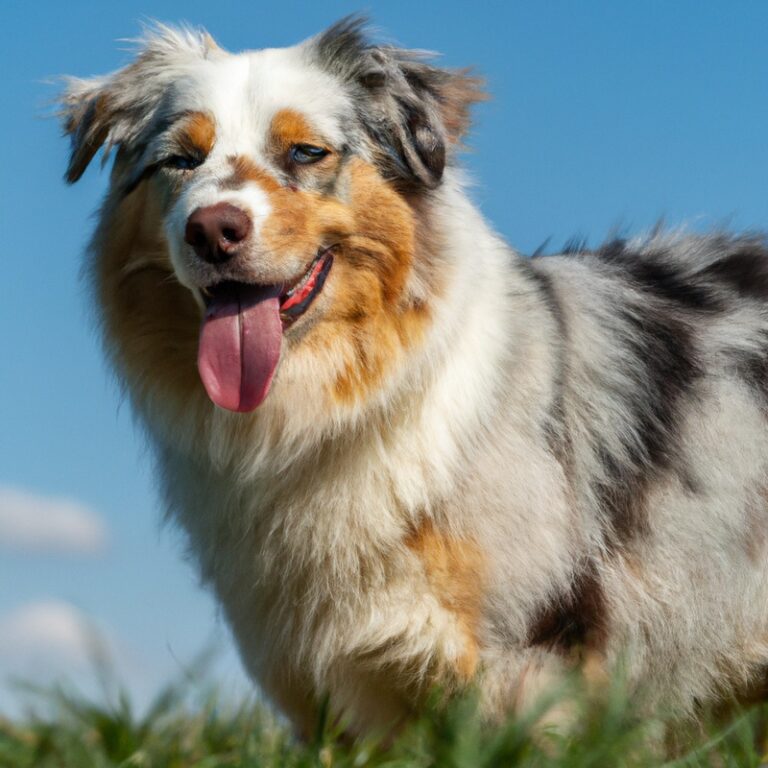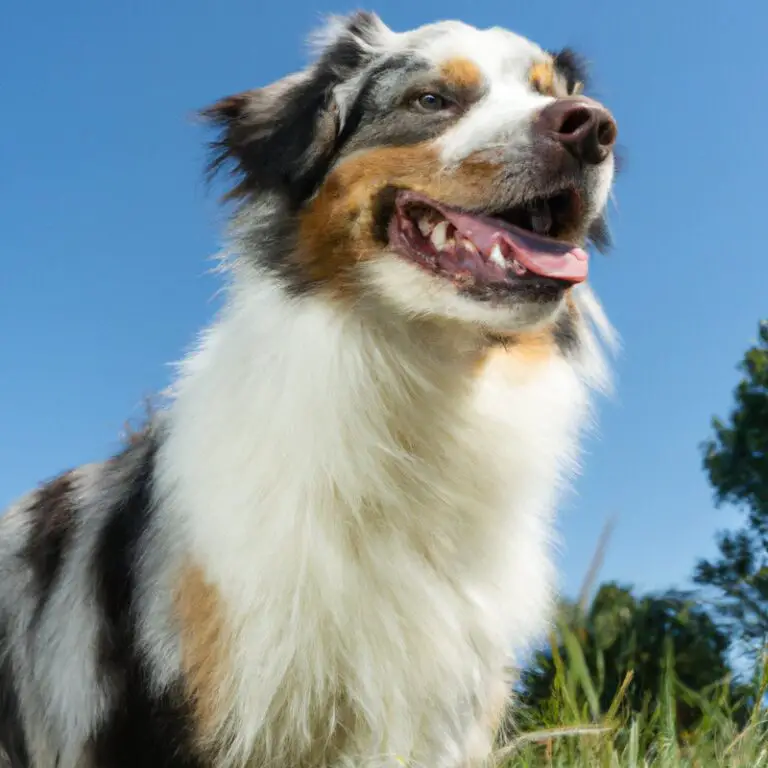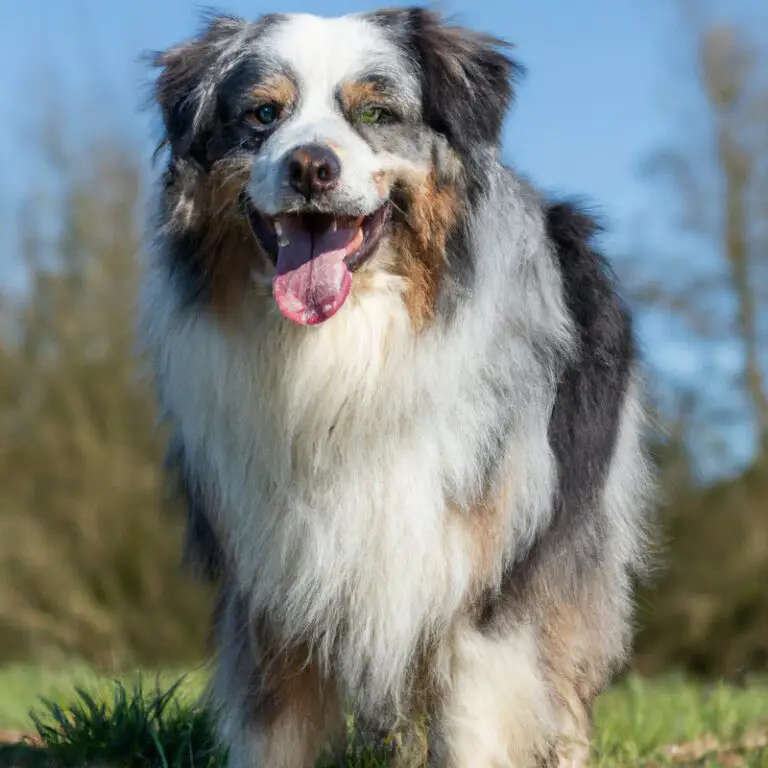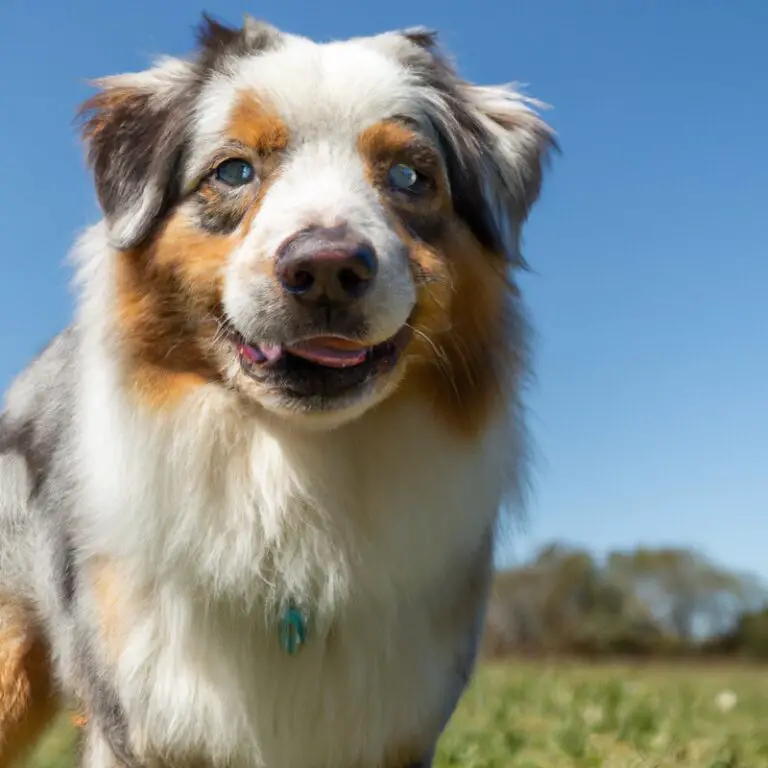Are Australian Shepherds Good Guard Dogs?
Key Takeaways:
- Australian Shepherds can be effective guard dogs due to their natural protective instincts and loyalty towards their families.
- Their intelligence and trainability make them well-suited for guard dog duties, allowing them to learn and respond to commands quickly.
- While Australian Shepherds have the potential to be good guard dogs, proper socialization and training from an early age are crucial for their success in this role.
- Although they may not possess the size and physical strength of some other guard dog breeds, Australian Shepherds make up for it with their alertness, agility, and exceptional hearing capabilities.
Are Australian Shepherds born to be guard dogs? As a passionate dog lover and experienced trainer, I can confidently say that these intelligent and loyal canines have the potential to excel in the role of a guard dog.
Their natural herding instincts, high trainability, and unwavering loyalty make them stand out among other breeds.
But before you make them your fur protector, it’s crucial to consider the specific characteristics and training requirements that come with this role. Join me as we explore the world of Australian Shepherds as guard dogs, uncover their training secrets, and address the potential challenges that come with this responsibility.
| Characteristics | Yes | No |
| Size | Medium to large | – |
| Temperament | Protective, loyal | – |
| Intelligence | Highly intelligent | – |
| Trainability | Easy to train | – |
| Protective Instinct | Strong | – |
| Noise Level | Alert barking | – |
| Energy Level | High | – |
| Exercise Needs | Daily exercise required | – |
| Suitable Family Dog | With proper training and socialization | – |
| Guard Dog Ability | Capable | – |
Australian Shepherds as Guard Dogs
Characteristics of Australian Shepherds
Australian Shepherds have several distinctive traits that make them well-suited for various roles, including being good guard dogs. They possess a natural herding instinct, high trainability, intelligence, alertness, loyalty, and a protective nature.
Their herding instincts make them highly perceptive and attentive to their surroundings, making them excellent at identifying and responding to potential threats.
With their high trainability and intelligence, Australian Shepherds can quickly learn and follow commands, making them efficient guard dogs. Additionally, their loyalty and protective nature towards their family members make them highly reliable and devoted protectors.
However, it is important to consider that while Australian Shepherds have the potential to be great guard dogs, proper training and socialization are crucial to ensure they develop the necessary skills and temperament for the role.
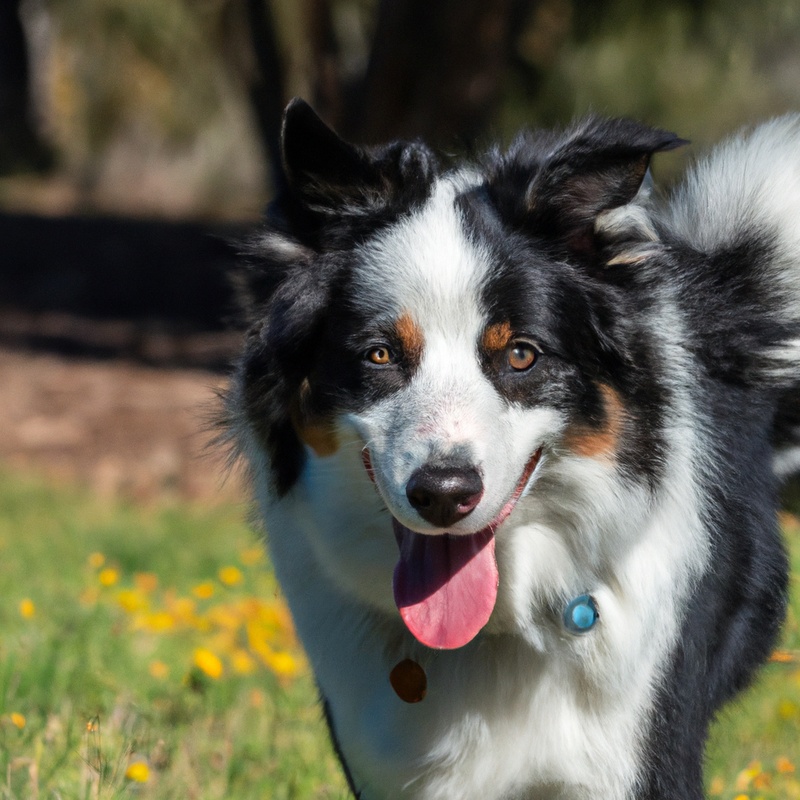
Natural Herding Instincts
Australian Shepherds have natural herding instincts. This means that they have an innate ability to control the movement of livestock.
They are known for their strong drive to gather, chase, and control animals.
These instincts can be seen in their behavior, such as nipping at heels or circling around individuals or objects. This herding instinct can be channeled into other activities, such as guarding, as they are intuitive in assessing and monitoring their surroundings.
So, when considering an Australian Shepherd as a guard dog, their natural herding instincts can be a valuable asset.
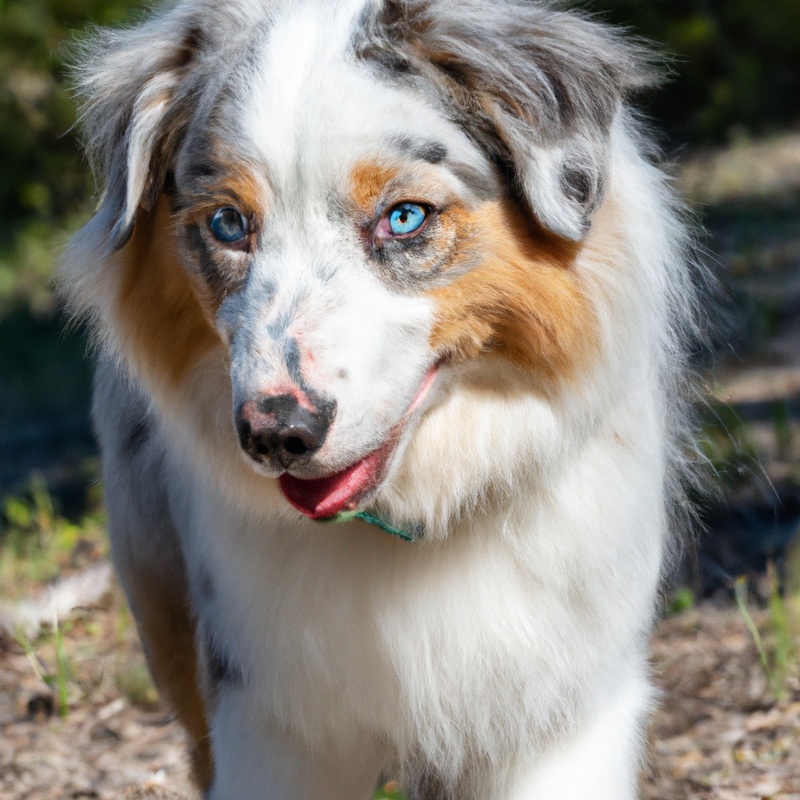
High Trainability
Australian Shepherds possess a high level of trainability. They are quick learners and eager to please their owners.
This makes them highly responsive to training and allows them to pick up new commands and skills relatively quickly.
Their intelligence and willingness to work make them excel in various training activities, including obedience, agility, and even advanced tasks like search and rescue. With consistent and positive reinforcement methods, Australian Shepherds can become well-trained and reliable companions.
However, it is important to note that training should be ongoing and reinforced throughout their lives to maintain their obedience and good behavior.
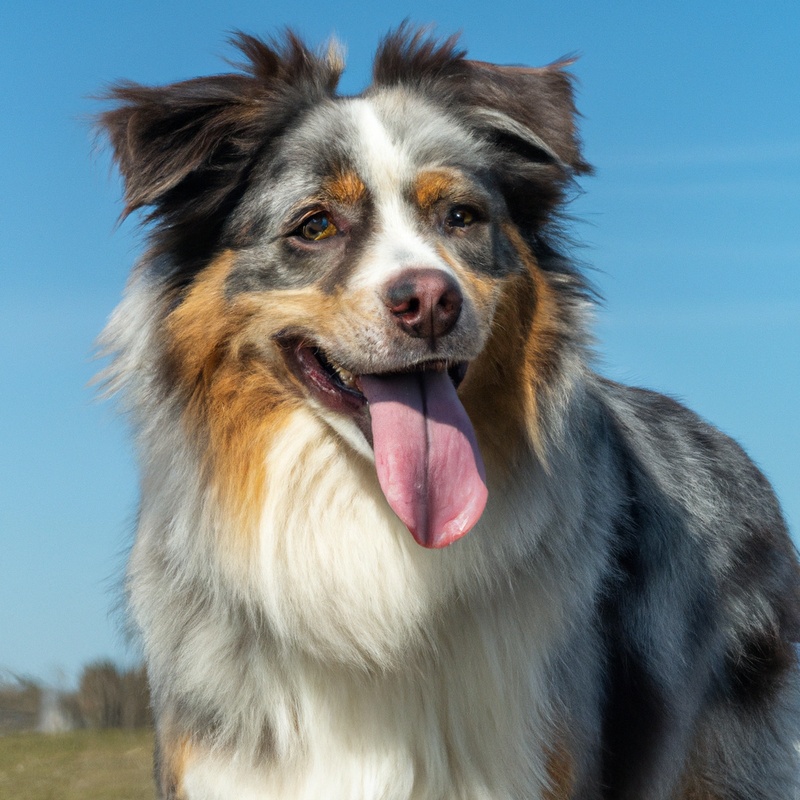
Intelligence and Alertness
When it comes to intelligence and alertness, Australian Shepherds are top-notch. They are known for their quick thinking and problem-solving abilities.
These dogs are highly perceptive, always alert to their surroundings.
With their keen senses, they can quickly detect any potential threats or unusual activities. Their intelligence and alertness make them excellent candidates for guard dog roles.
However, it’s important to note that training and socialization are also key factors in harnessing these traits effectively.
So, by focusing on their natural intelligence and alertness, we can enhance their potential as guard dogs.
Loyalty and Protective Nature
Australian Shepherds are known for their remarkable loyalty and protective nature. They form strong bonds with their owners and are dedicated to keeping them safe.
This breed is naturally inclined to protect their loved ones, whether it’s their human family members or other animals in the household.
Their protective instincts make them excellent guard dogs. Australian Shepherds are always alert and vigilant, making them quick to respond to any potential threats.
Their loyalty and protective nature make them ideal companions for those seeking a reliable and dependable guard dog.
Considerations for Guard Dog Role
Considering an Australian Shepherd for a guard dog role requires careful thought and consideration. While they possess many characteristics that make them great working dogs, there are a few factors to keep in mind.
First, while Australian Shepherds are intelligent and trainable, they are primarily herding dogs, not traditionally bred for guarding.
This means that their natural instincts might lean more towards herding and chasing rather than guarding. However, with the right training and socialization, they can still be effective guard dogs.
Another consideration is their high energy levels and exercise needs.
Australian Shepherds are active and require plenty of physical and mental stimulation. If their exercise needs are not met, they may become frustrated or develop behavioral issues, which can affect their suitability as guard dogs.
It’s also important to note that Australian Shepherds can be wary of strangers and exhibit protective behavior towards their families.
However, they are generally not aggressive dogs. Proper socialization from an early age is crucial to ensure they can distinguish between genuine threats and normal situations.
Additionally, Australian Shepherds are known for their loyalty and devotion to their families.
While this can be a desirable trait for a guard dog, it also means they can become overly attached and suffer from separation anxiety if left alone for long periods. This may lead to excessive barking or destructive behaviors.
Lastly, their compatibility with families and other pets should be considered.
Australian Shepherds are typically good with children and can get along well with other pets if properly socialized. However, their herding instincts may cause them to nip or chase smaller animals, so caution should be exercised.
Training Australian Shepherds for Guard Duties
Socialization and Obedience Training
Socialization and obedience training are essential for Australian Shepherds to excel as guard dogs. Proper socialization exposes them to a variety of people, animals, and environments, helping them become well-adjusted and less prone to anxiety or aggression.
It is important to introduce them to different situations early on and positively reinforce their good behavior.
Obedience training involves teaching basic commands such as sit, stay, come, and heel. These commands establish a foundation of control and respect between the dog and owner.
Consistency, patience, and positive reinforcement techniques are key in obedience training.
Australian Shepherds are intelligent and eager to please, which makes them highly trainable. In addition to basic obedience, guard-specific commands should be introduced to teach the Australian Shepherd to alert, warn, or protect.
This can include commands like “watch,” “speak,” or “quiet.” Continual reinforcement of these commands is vital for consistency and reliability.
Professional training assistance can greatly enhance the effectiveness of socialization and obedience training. Trainers have the expertise to guide both the dog and the owner, ensuring that training methods are effective and appropriate for the Australian Shepherd’s temperament and abilities.
Remember, socialization and obedience training are ongoing processes that require time, effort, and patience.
By providing consistent training and positive reinforcement, Australian Shepherds can develop the necessary skills to excel as guard dogs.
Teaching Basic Commands
Teaching basic commands to your Australian Shepherd is an essential step in their training journey. It helps build a strong foundation for further training and ensures their safety and obedience.
Here are some key basic commands to teach your Australian Shepherd:
- Sit: This command teaches your dog to sit down on command. It’s a fundamental command that helps manage their behavior and can be useful in various situations.
- Stay: Teaching your Australian Shepherd to stay in one place until released is crucial for their safety. It enables you to control their movements and helps prevent accidents or unwanted behavior.
- Come: This command is essential for recall and should be taught consistently from an early age. It ensures that your dog comes back to you when called, even in distracting environments.
- Lie down: This command teaches your Australian Shepherd to lie down on command. It can be useful for relaxing them or controlling their behavior in situations where sitting may not be appropriate.
- Leave it: Teaching your dog to leave something alone when commanded is vital for their safety. It prevents them from picking up harmful objects or consuming something they shouldn’t.
When teaching these commands, consistency is key. Use positive reinforcement techniques such as treats, praise, and rewards to motivate your Australian Shepherd.
Break the training sessions into short, frequent sessions to keep them engaged and focused.
Remember, patience is crucial, and each dog learns at their own pace. Celebrate small victories and always end each training session on a positive note.
With time and consistency, your Australian Shepherd will master these basic commands and become a well-trained companion.
Focus on Desensitization and Distraction Training
When training Australian Shepherds for guard duties, it’s important to focus on desensitization and distraction training. Desensitization involves exposing your dog to various stimuli, such as unfamiliar people or noises, in a controlled and positive manner.
This helps them become less reactive and more confident in different situations.
Distraction training is about teaching your Australian Shepherd to focus on you, even when there are distractions around. This can be achieved through exercises that gradually increase the level of distractions, such as having someone walk by or making noise while your dog remains focused on you.
Both desensitization and distraction training are crucial for a guard dog, as they need to be able to stay focused and calm in potentially stressful or distracting situations.
With consistent practice and positive reinforcement, your Australian Shepherd can become skilled in handling these challenges, making them a reliable and effective guard dog.
Introducing Guard-Specific Commands
Introducing guard-specific commands is an essential part of training Australian Shepherds for guard duties. It helps them understand their role and respond to specific situations.
Here are a few important commands to teach them:
- “Bark/Cease” – Teach your Aussie to bark on command and stop when told. This can be useful for alerting you to potential threats and stopping unwanted barking.
- “Watch” – Train your dog to focus their attention on a specific person or area. This command helps them stay vigilant and alert to any suspicious activity.
- “Guard” – Teach your Aussie to protect a specific area or object. This command is particularly useful if you want your dog to watch over your property or belongings.
- “Release” – This command tells your dog to let go of whatever they’re holding, whether it’s a toy or an intruder. It’s important for safety and control during guarding situations.
Remember, consistency and positive reinforcement are crucial while teaching these commands. Start with basic obedience training and gradually introduce the guard-specific commands.
Professional training assistance can be beneficial for a thorough and effective training program.
With patience and dedication, your Aussie can become a reliable guard dog.
Reinforcement Techniques and Consistency
Reinforcement techniques and consistency are key when training Australian Shepherds for guard duties. I find positive reinforcement to be highly effective with this breed.
By using rewards such as treats, praise, and playtime, I can motivate and encourage desired behaviors.
Consistency is also essential, as Australian Shepherds thrive on routine. By providing clear, consistent commands and expectations, I can help them understand their role as a guard dog.
Regular and structured training sessions are crucial to reinforce their skills and maintain their focus.
Additionally, it’s important to be patient and persistent, as training a guard dog requires time and dedication. Professional training assistance can be instrumental in achieving optimal results.
Importance of Professional Training Assistance
Professional training assistance is crucial when it comes to training Australian Shepherds for guard duties. An experienced trainer can provide expert guidance and help develop the specific skills and behaviors necessary for this role.
They can teach proper techniques for socialization, obedience, and specialized commands.
Additionally, professional trainers have the knowledge to address any challenges or behavioral issues that may arise during the training process. With their assistance, you can ensure that your Australian Shepherd becomes a well-trained and reliable guard dog.
Potential Challenges of Australian Shepherds as Guard Dogs
Demanding Exercise and Mental Stimulation Needs
Australian Shepherds have demanding exercise and mental stimulation needs. They are an active breed that thrives on regular physical activity to keep them happy and healthy.
Daily walks, runs, and play sessions are essential to fulfill their exercise requirements.
These dogs also excel in agility, obedience, and herding activities. Mental stimulation is just as important as physical exercise for Australian Shepherds.
Engaging their intelligent minds with puzzle toys, training sessions, and interactive games is crucial.
These activities help prevent boredom and destructive behaviors. Meeting the exercise and mental stimulation needs of an Australian Shepherd is essential for their overall well-being and a happy, fulfilled life.
Aggressiveness and Proper Socialization
Aggressiveness and proper socialization are two important factors to consider when it comes to Australian Shepherds as guard dogs. Australian Shepherds are not inherently aggressive, but like any dog breed, they have the potential for aggression if not properly socialized.
It is crucial to expose them to different environments, people, and animals from a young age.
This helps them develop positive associations and learn appropriate behavior in various situations. Proper socialization also helps Australian Shepherds understand boundaries and reduces the likelihood of fear-based aggression.
By exposing them to different sounds, sights, and experiences, they become more confident and less likely to react aggressively.
Socialization should be an ongoing process throughout their lives. Regularly exposing them to new situations, people, and animals helps maintain their well-rounded and well-mannered nature.
This could involve visiting different places, attending training classes, and organizing playdates with other dogs.
Remember, aggression in Australian Shepherds can be managed and prevented through consistent, positive socialization. With the right training, they can excel as loyal and protective guard dogs.
Separation Anxiety and Barking Tendencies
Separation anxiety and barking tendencies are common challenges that Australian Shepherds may face as guard dogs. These dogs are highly affectionate and form strong bonds with their owners, which can lead to anxiety when left alone for long periods.
This anxiety can result in excessive barking as a way to cope with their loneliness.
To address separation anxiety, it’s crucial to gradually acclimate your Australian Shepherd to being alone. Start by leaving them alone for short periods and gradually increase the duration.
Providing them with interactive toys or puzzle feeders can also help keep them engaged and distracted while you’re away.
Barking tendencies can be managed through consistent training and positive reinforcement. Teaching your dog the “quiet” command and rewarding them for not barking excessively can be effective.
It’s important to understand that Australian Shepherds have a natural inclination to vocalize, so finding a balance between alert barking and excessive barking is key.
Remember, each Australian Shepherd is unique, and it may take time to find the right approach for managing separation anxiety and barking tendencies. Seeking guidance from a professional dog trainer can provide valuable insight and techniques to address these challenges.
With patience and persistence, you can help your Australian Shepherd become a successful guard dog.
Compatibility with Families and Other Pets
Australian Shepherds are known for their affectionate and friendly nature, making them highly compatible with families and other pets. These dogs form strong bonds with their human family members and are often gentle and patient with children.
They can adapt well to living with other pets if introduced properly and given proper socialization.
However, it is important to supervise interactions and ensure that all animals are comfortable and safe. Regular exercise and mental stimulation are crucial to prevent any potential behavioural issues.
Overall, Australian Shepherds can make excellent companions for families and get along well with other pets when given the right care and attention.
Grooming and Shedding Requirements
Grooming and shedding requirements are important considerations when it comes to Australian Shepherds. These dogs have a double coat that requires regular brushing to prevent matting and tangles.
Daily brushing is recommended during shedding seasons to manage the amount of fur that they shed.
Additionally, Australian Shepherds may need occasional bathing, but over-bathing can strip their coat of natural oils. Another aspect of grooming is nail trimming, dental care, and ear cleaning.
Regular nail trims are essential to prevent discomfort and potential injuries.
Dental care, such as brushing their teeth, helps prevent dental problems. Lastly, cleaning their ears on a regular basis prevents infections and discomfort.
In terms of shedding, Australian Shepherds are moderate to heavy shedders.
They have a dense undercoat that is shed heavily once or twice a year. During these times, more frequent brushing can help manage the shedding.
Overall, grooming and shedding requirements are essential in maintaining the health and appearance of Australian Shepherds.
Final Verdict
I firmly believe that Australian Shepherds can excel as guard dogs due to their unique combination of traits. Their natural herding instincts, high trainability, intelligence, loyalty, and protective nature make them well-suited for the role.
However, it’s important to note that training is essential to harness their potential effectively.
Socialization, obedience training, and specific guard commands should be taught with consistency and reinforcement techniques. Despite potential challenges such as exercise needs and proper socialization, Australian Shepherds can thrive as reliable and devoted guard dogs with the right training and care.

